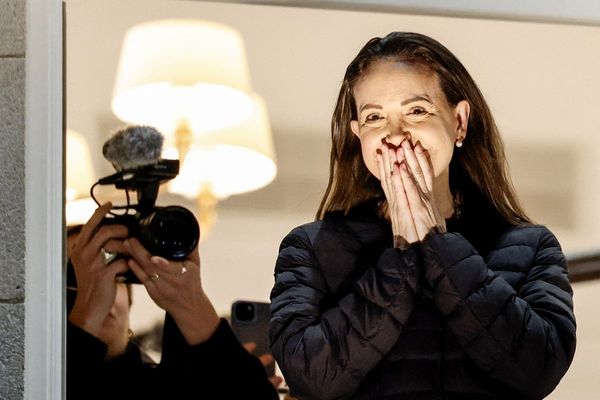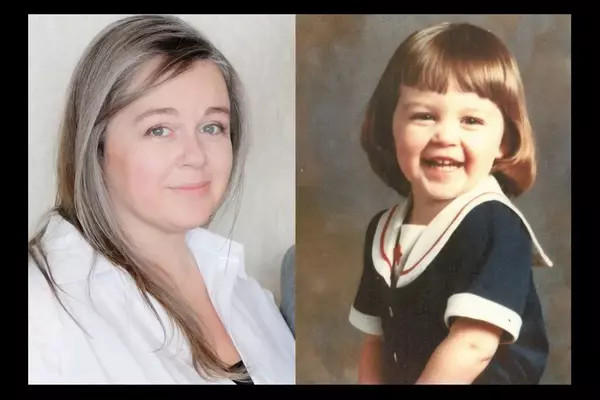
The sun beats down on a woman waist-deep in earth. Her husband grubs around in a bunker behind her as she fills the void with her boundless optimism. This absurdist setup to Samuel Beckett’s 1961 drama, featuring another of his trapped worlds, looks less absurd in Siobhán McSweeney’s masterful hands.
Directed by Caitríona McLaughlin and produced by Landmark Productions, she brings a beguiling naturalism to the part, along with subtle clowning which catches every last tic of Beckett’s humour and wistfulness without straining for it.
McSweeney delivers some lines as if talking to a neighbour over the garden fence, her anxiety underneath occasionally glimpsed through pools of prolonged silence and frenetic fits of cleaning or grooming as she pulls out items from her bag, intent on organising the few things she is still able to control.
But she becomes her own musical-hall act too, performing as if for her own entertainment – or for Willie (Howard Teale), who is a Vaudevillian sidekick in the first act, only visible from behind and also obscured beyond the waist. A woman stuck in the world with no hope of escape – there is no Godot-like figure who may rescue her from this nothingness – she brings sparks of theatricality and glamour, wearing a cocktail dress with a string of pearls and fascinator, as if for a day out at Ascot.
Fantasy, and beauty, become survival strategies as she recalls snatches of poetry and closes her eyes in dreamy exaltation to her music box, which here seems equivalent to Blanche DuBois’ paper lantern. The wasteland around her casts its own sparkling illusion. Jamie Vartan’s set design is a glittering wilderness of mustard earth with windows revealing bright blue sky, and reflecting another kind of hallucinatory brightness.
McSweeney refuses to let the character’s monologue become flecked with despair, even when she is dishevelled and up to her neck in mud. Fending against it through subtle movements: wagging a finger against self-pity, pulling herself up at the start of the day, which might also be an attempt to haul herself out of her mound. This seems as much to be McSweeney’s actorly resistance against the “tragi-” part of Beckett’s tragicomedy as Winnie’s Pollyanna-ish personality.
This production was conceived during the pandemic lockdown and streamed in a one-off broadcast (it has since played live in Cork and Dublin as well as Birmingham, with further shows planned). Winnie and Willie’s enforced stasis serves as an apt reflection of that time. Teale is excellent in his part, bringing physical wit and then, in his pained crawl around Winnie’s mound, a scuttling menace. The couple never look directly at each other until the end when we leave them locked in marital standoff. Is Willie a witness to Winnie’s pain or the source of it? The question is left to waver ominously.







